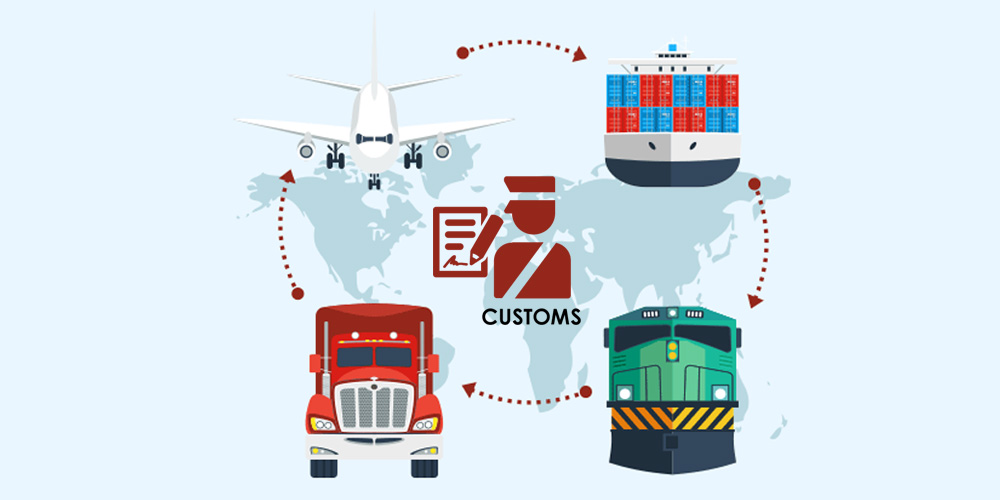"Customs Disruptions Crippling Your Logistics? Here’s How to Fix It Fast"

1.Regular Monitoring of Legislative Changes
Staying ahead of customs disruptions starts with keeping a close eye on legislative updates and shifts in customs regulations. Changes like new trade agreements, updated tariffs, or stricter import/export rules can dramatically impact your logistics chain if you're caught off guard. By regularly monitoring these changes, you can proactively adjust your strategies and minimize potential setbacks.
- Tip: Set up alerts for key regulatory bodies and trade associations relevant to your business. Subscribing to industry newsletters or using specialized compliance software can also keep you updated on the latest developments.
- Pro Tip: Partner with a legal advisory service specializing in international trade to get customized updates and advice tailored to your specific routes and markets.
2. Building Strong Relationships with Customs Agents
Working closely with experienced customs agents is a game-changer in navigating customs challenges. These experts have in-depth knowledge of the latest regulations and can guide you through the maze of paperwork and procedures, ensuring your goods clear customs quickly and efficiently.
- Tip: Choose agents with a proven track record and extensive experience in your industry. A good agent can also offer insights into the nuances of local customs regulations that might not be immediately obvious.
- Pro Tip: Make your relationship a two-way street; share your business plans and potential changes with your agents so they can anticipate your needs and align their services accordingly.
3. Education and Training of Staff
Investing in regular training for employees involved in logistics and customs procedures is crucial for maintaining a high level of expertise and awareness. Customs regulations and procedures can change frequently, and keeping your team up-to-date helps prevent costly mistakes that could lead to delays or penalties.
- Tip: Implement a structured training program that covers the latest customs regulations, best practices, and case studies. Utilize online platforms or workshops led by industry experts to ensure comprehensive learning.
- Pro Tip: Encourage certifications in customs compliance and logistics management for key staff members. Certifications like Certified Customs Specialist (CCS) can enhance your team's skills and your company's reputation in the industry.
4.Creating Resilient Supply Chains
Building a resilient supply chain isn’t just about responding to customs disruptions—it's about proactively preparing for any logistical challenge that might arise. A resilient supply chain can quickly adapt to unexpected disruptions, whether they come from customs, supplier issues, or natural disasters, ensuring your business continuity remains intact.
- Tip: Conduct regular risk assessments to identify vulnerabilities within your supply chain. Develop a response plan that includes contingency measures for the most likely disruptions, such as alternative shipping routes or emergency inventory buffers.
- Pro Tip: Utilize scenario planning to prepare your team for various disruption scenarios. Regularly test these plans with simulated disruptions to ensure your response strategies are robust and effective.
5.Strategies for Supply Chain Resilience
To build a truly resilient supply chain, diversification is key. By spreading your suppliers and manufacturing locations across different regions, you reduce the risk of being overly dependent on any single point of failure. This approach not only mitigates customs disruptions but also protects against broader risks like regional economic instability or natural disasters.
- Tip: Identify and onboard secondary suppliers in different geographic locations to act as backups for critical components. This redundancy helps safeguard your supply chain against regional disruptions.
- Pro Tip: Karam Al Arab emphasizes the importance of diversifying its supply chain networks, allowing the company to quickly pivot and maintain operations even when facing regional challenges Leveraging relationships with multiple logistics partners also ensures that alternative routes are readily available when needed. 6.Foster a Culture of Continuous Improvement
Creating a culture that values continuous improvement can significantly bolster your logistics operations. Encourage your team to regularly review processes, share feedback, and suggest enhancements A culture of learning and adaptability can make a big difference in how well your company manages disruptions.
- Tip: Implement a system for capturing lessons learned from each disruption event. Use this data to refine your strategies and make incremental improvements over time.
- Pro Tip: At Karam Al Arab, fostering a culture of continuous improvement is ingrained in the company ethos. Employees are encouraged to innovate and find new ways to streamline processes, ensuring that the company remains agile and responsive to any customs or logistical challenges that arise.
Customs disruptions are a reality in the ever-evolving landscape of global trade, posing significant challenges to logistics chains. However, with the right strategies—such as proactive planning, leveraging advanced technology, building strong partnerships with customs agents, and fostering flexibility within your operations—companies like Karam Al Arab effectively navigate these hurdles. Preparation and proactivity are the cornerstones of maintaining logistics chain efficiency and resilience. By continuously adapting and enhancing your approach to customs management, you can not only mitigate disruptions but also turn potential setbacks into opportunities for growth and improved operational performance. In today’s dynamic trade environment, staying ahead of customs challenges isn't just a necessity; it’s a competitive advantage.


